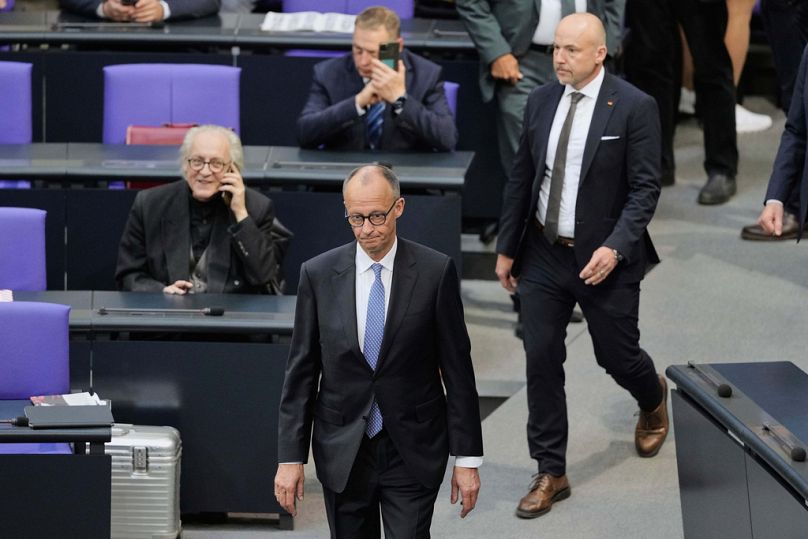Bundestag confirmed Friedrich Merz as Germany's new chancellor in a successful second vote after he unexpectedly lost an initial round earlier on Tuesday.
Merz won 325 votes in favour — higher than the 316 required.
The successful vote comes after the scheduled parliamentary session was thrown into chaos when he narrowly lost the first vote.
Merz secured 310 hands in the first round — six fewer than what he needed to ensure a majority in the Bundestag.
His initial loss on Tuesday marks the first time in the federal republic's history that an incoming chancellor has failed to secure the majority of votes on the first ballot after winning an election and securing a successful coalition agreement.
It was also a bitter personal disappointment for Merz, who made it clear that he expected to easily secure a majority in parliament, given that his CDU and its coalition partners, the centre-left Social Democrats (SPD), have 328 seats in parliament combined.
Dissenters unknown
There were no limits to the number of possible votes that could have taken place if Merz failed the second round — but multiple nos would have marked a devastating political failure for the politician who vowed to lead Germany out of six months of political gridlock with a steady hand.
It is still unclear who in the secret ballot did not support his bid to the chancellery, although given the vote it is apparent some dissenters come from within the CDU or SPD.
Not every member of the SPD was happy with the coalition agreement between the two parties, despite it being agreed upon by a large majority of the party base — 84%.
However, SPD leader Lars Klingbeil told broadcaster Welt after the vote that there were no indications of apostates within his party's ranks, which, if true, would mean that Merz faced opposition from within the CDU itself.

Opposition parties including the Alternative for Germany (AfD) capitalised on Merz's initial defeat, calling for Merz to step down and for new elections to be called right away.
They also however, ultimately approved that a second round take place later in the day. By the afternoon, CDU parliamentary group leader Jens Spahn announced that a second vote would take place.
"All of Europe, perhaps the entire world” is watching the vote, Spahn said as he appealed to lawmakers to back the coalition's mandate or face further political gridlock.
What's next?
World leaders were quick to congratulate Merz, who is set to meet German President Frank-Walter Steinmeier at the Bellevue Palace and take an oath of office alongside his new cabinet.
European Commission President Ursula von der Leyen called him a "proven friend and expert on Europe," while Ukrainian President Volodymyr Zelenskyy said he hoped to see "more German leadership in European and transatlantic affairs."
Merz is Germany's 10th chancellor since the 1947 constitution gave the role greater power over the president and the fifth since the country's reunification in 1990.
His government will take over following months of political paralysis after the former coalition government fell apart amidst political infighting.
He will face an economy that has shrunk for the past two years and is forecast to see zero growth this year.
His coalition will also have to handle an emboldened AfD — now the second largest group in parliament. The party were classified as a "far right extremist organisation" by domestic intelligence last week, a designation AfD has legally challenged.







